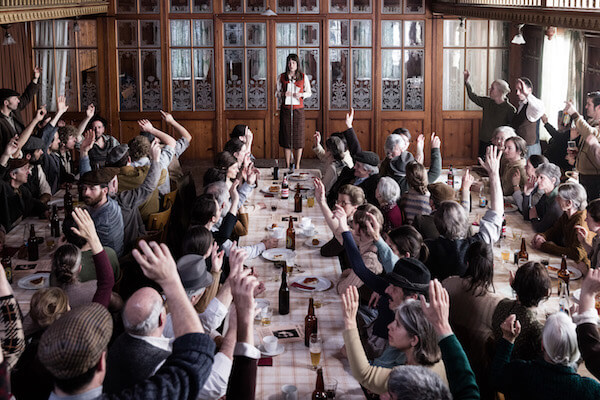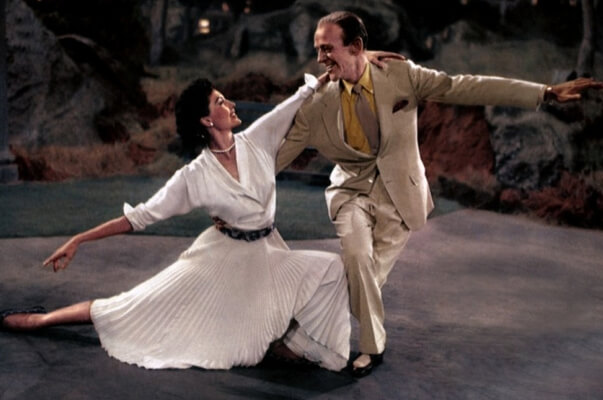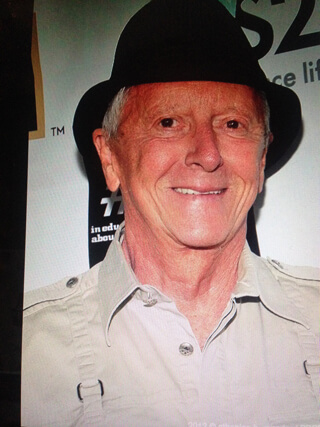Luis Silva and Alfredo Castro in Lorenzo Vigas’ “From Afar.” | STRAND RELEASING
In Venezuelan writer/ director Lorenzo Vigas’ superb drama “From Afar,” which won the Golden Lion at the Venice Film Festival, Armando (Alfredo Castro) is a 50-year-old who pays young men to bare their bodies for his masturbatory pleasure. A damaged man — he does not like to be touched — Armando gets more than he bargained for when he meets Elder (Luis Silva), a teenager who beats and robs him. However, Armando becomes intrigued by the young man and pursues him. Elder, it turns out, finds a kind of father figure and protector in Armando.
Vigas adroitly chronicles the relationship that develops between this odd couple. With the camera acting as a voyeur, Vigas uses focus, silence, and probing close-ups as Armando and Elder silently exchange glances that convey deep meaning and emotion. The film slow-burns to an intense climax.
Lorenzo Vigas explores fathers, sons, power, and affection in Venezuela
Vigas spoke with Gay City News about making “From Afar.”
GARY M. KRAMER: You are a straight man, Lorenzo. Can you discuss why you would make such a queer film?
LORENZO VIGAS: I don’t like seeing films made for someone specific. Good films are for everyone. Even though an older man and a younger man are attracted to one another, what attracts them is that they both have deep emotional needs. I come from this macho place that is South America, where you have to be alpha macho to be respected. In Venezuela we have the malandro — a criminal who gets respect. But Elder, the malandro, soon sees that Armando, who is gay, is way more macho than he is. Power is very important in the film. I always thought it was a love story.
GMK: You are very conscious about focus and framing, what is seen and shown. Can you talk about your visual approach to the film and story?
LV: I’m the son of a very important painter in South America. I have all that visual aesthetics in me, and I’m very much into it. When I thought of how to shoot the film, I was driven by the psychology of Armando. I thought of using extreme out-of-focus to show him in the streets of Caracas physically, but not emotionally. I wanted him to be a ghost in the city — a separation between him and the rest of the people.
The framing is important too. The film plays with things you don’t see or hear, and that’s a way to engage the audience. It fills the gaps with your imagination. It was important for me to leave things out of frame in specific moments so you can imagine it. Ambiguity is important in the film.
GMK: Armando is a son who hates his father, but acts fatherly to Elder. Elder hates his father and acts like a son to Armando, then becomes his lover. Can you talk about these father/ son relationships?
LV: I’ve been working on a trilogy about the absent father in Latin America. The first is “Elephants Never Forget,” my short, which is on YouTube. This is the second film. In Venezuela, the father is never home. So father figures in Latin America are leaders who are expected to replace the father who was not home when you were a kid. That’s why people are blind to Chavez.
I have no idea why I have this obsession. My relationship with my father was the opposite. He was always home and close to me. But I felt a pressure being the son of someone very important. He never lacked emotion. Sometimes you connect with the archetype.
GMK: How and when Elder displays his body to Armando is important. Can you talk about Elder’s body representing desire, longing, protection, and truth?
LV: No one has taken care of Elder or given him protection, so his body is the only way he can show gratitude. Showing his body is a way that Elder discovers things he has never felt before, as well. This is the first time Elder falls in love in his life — that’s why he shows his body. In Venezuela, we are very physical. If you have a sexy body, you show it in Venezuela.
GMK: Can you address the issue of shame and sexuality, especially in regard to Latino male culture and society?
LV: In Venezuela, a common way of denigrating a friend is calling him “puta” [“whore”]. I guess that’s why I like the fact that in the film the gay man takes control of the situation. It’s a study about that pain in Latin America.
GMK: There has been much in the news about the economic problems in Venezuela. How has this real life situation influenced your characters and your film?
LV: There is a lack of communication between the government and the people. There is no communication between the classes. It has been cut off. Armando cannot communicate, so his character works as a metaphor. He cannot communicate, whereas Elder, who is loud, is the opposite.
I’m sure the film will be controversial in Venezuela. People will reject the film because they don’t want to be confronted in such a direct way. We are used to soap operas and people like to see films that are soap operas, so this will be the opposite. But I hope the film makes people talk. If it can start dialogues in a country where dialogues have been shut off, that would be great.
FROM AFAR | Directed by Lorenzo Vigas | Strand Releasing | Opens June 8 | Film Forum, 209 W. Houston St. | filmforum.org



































